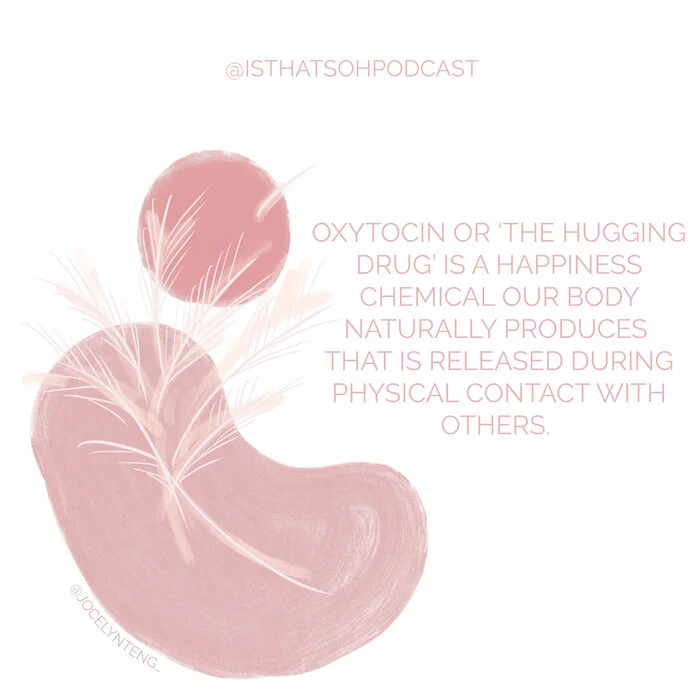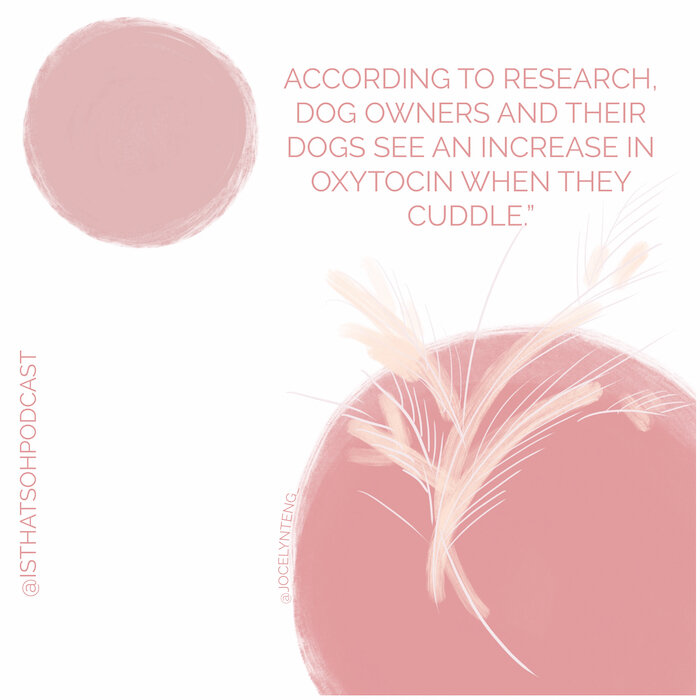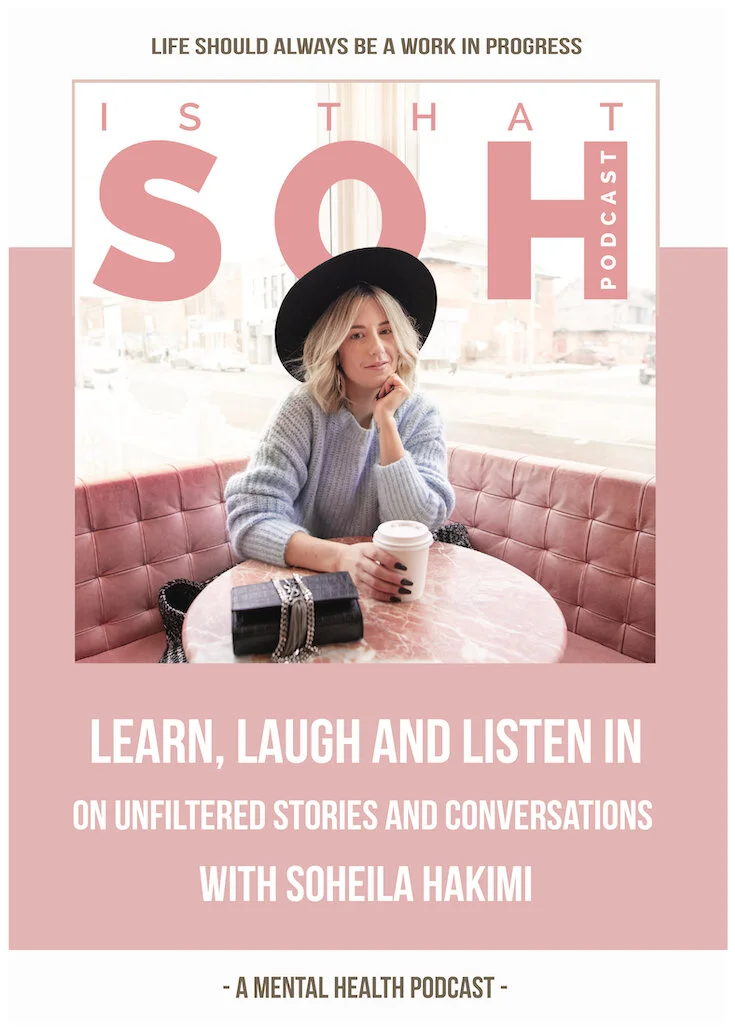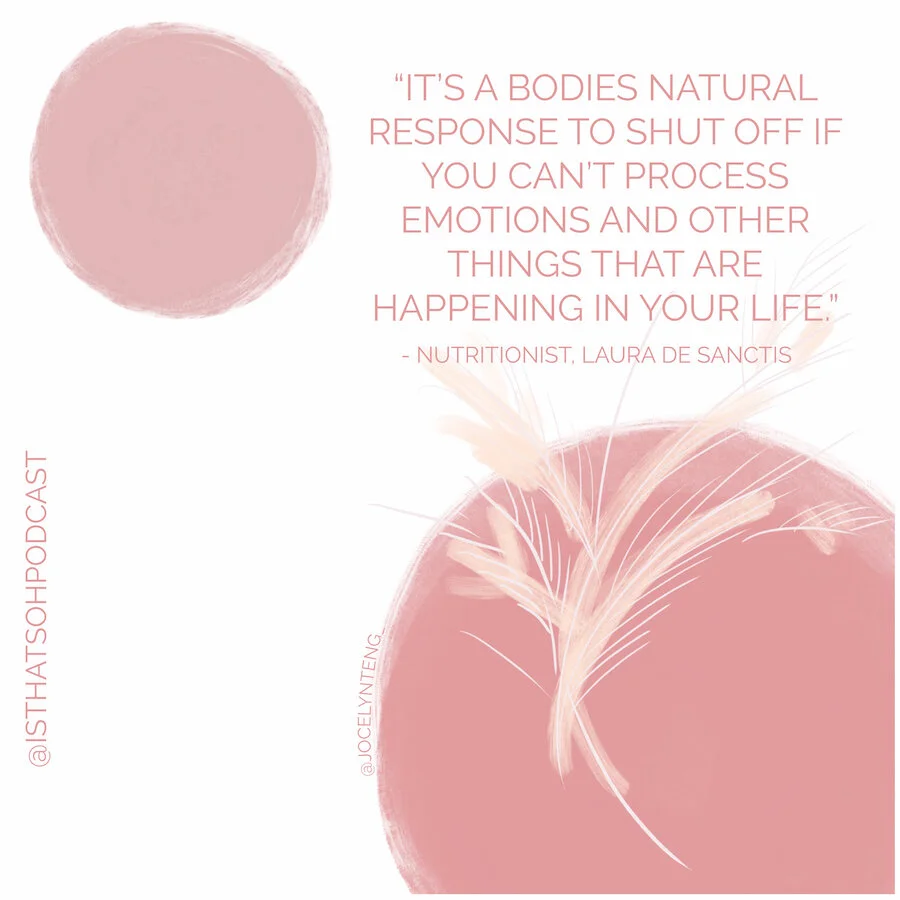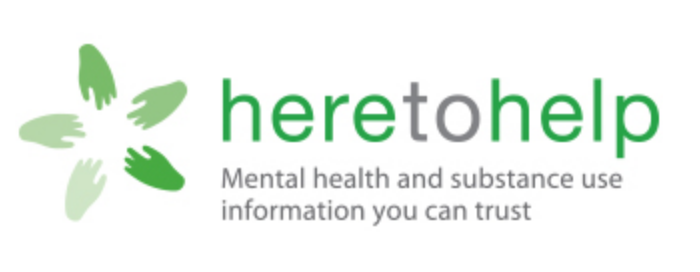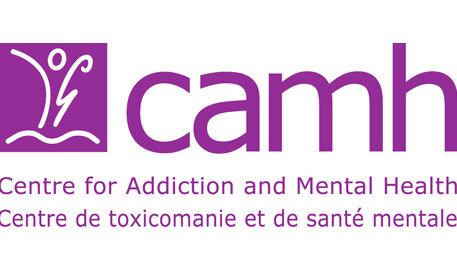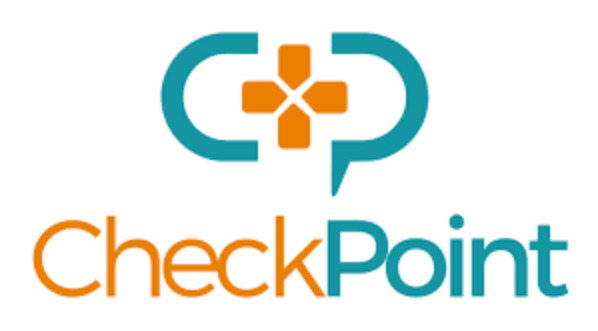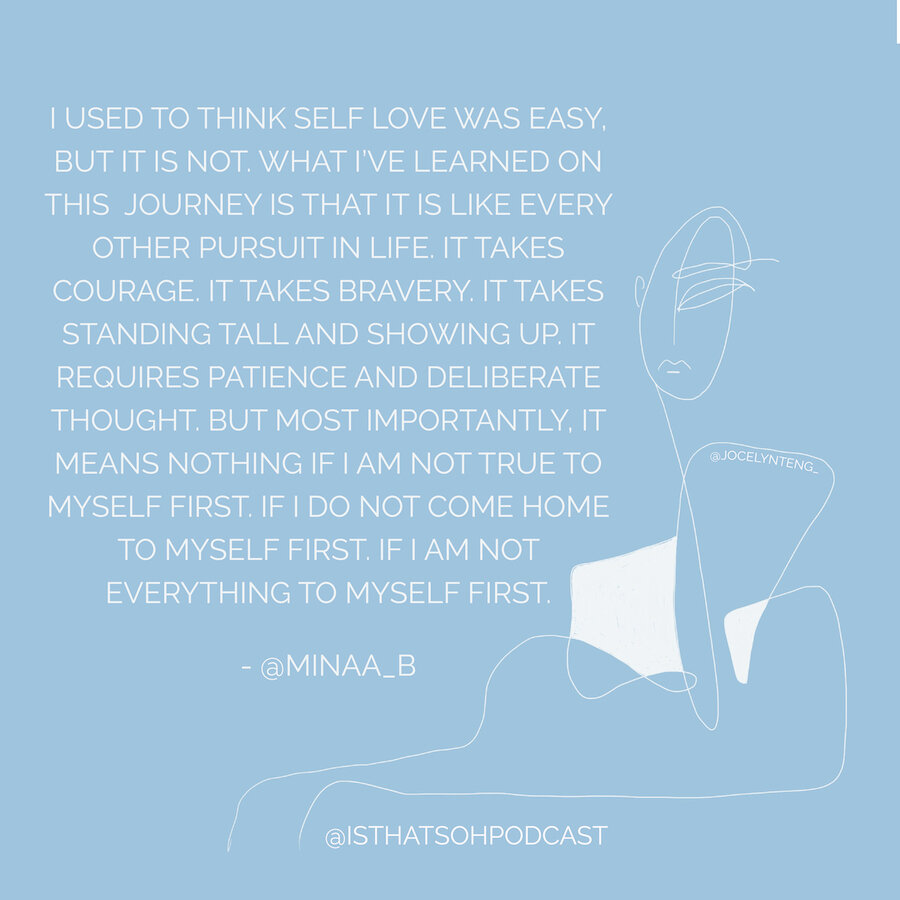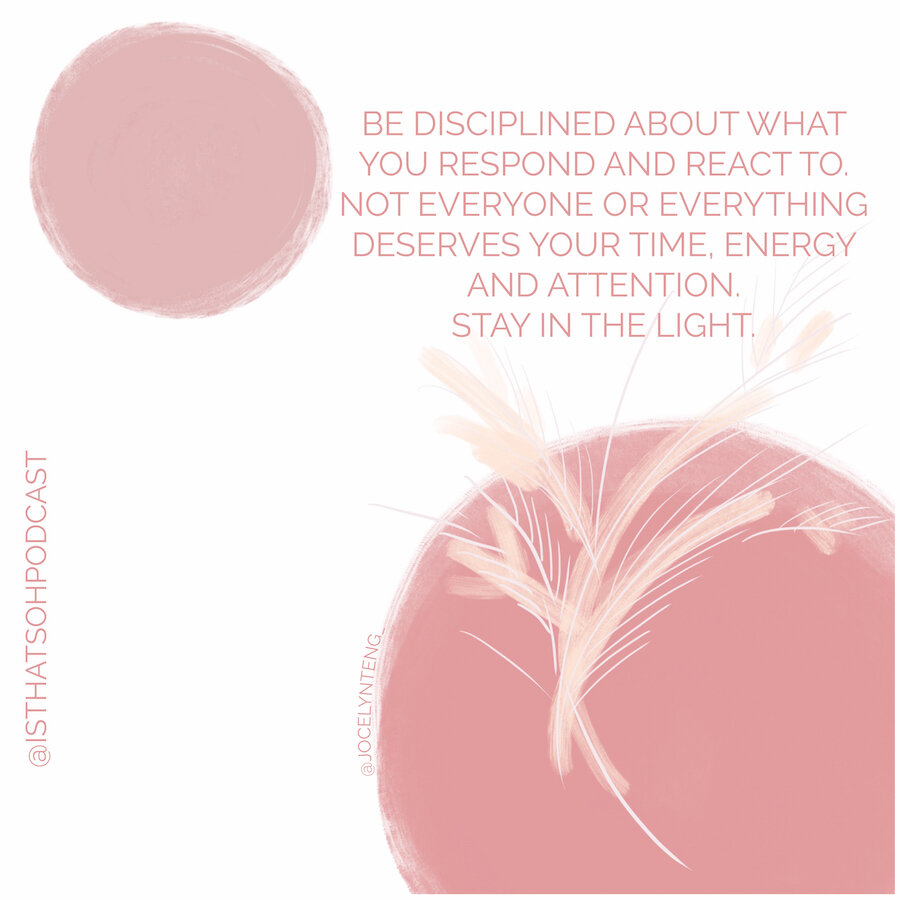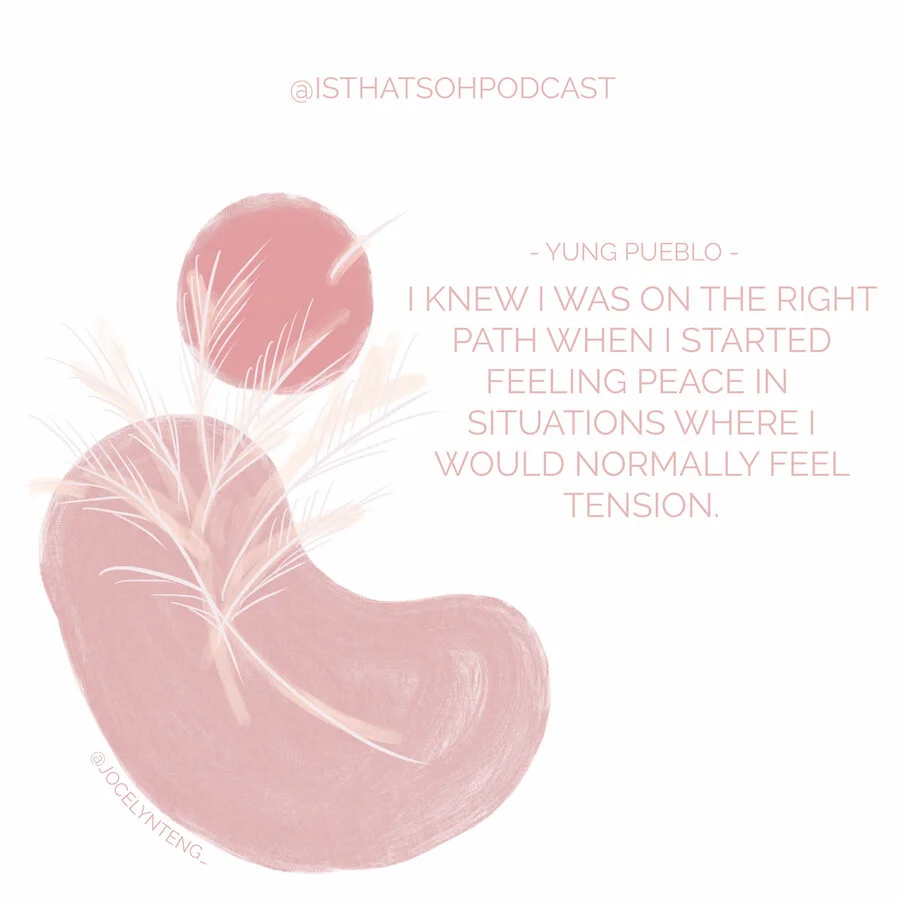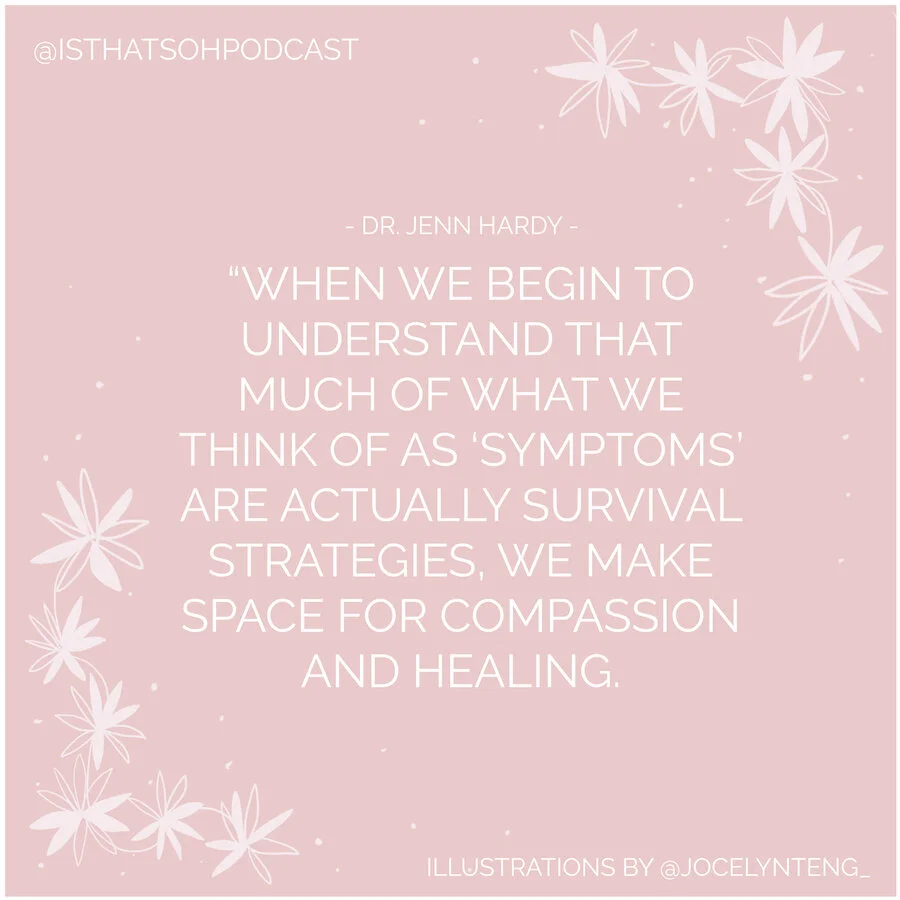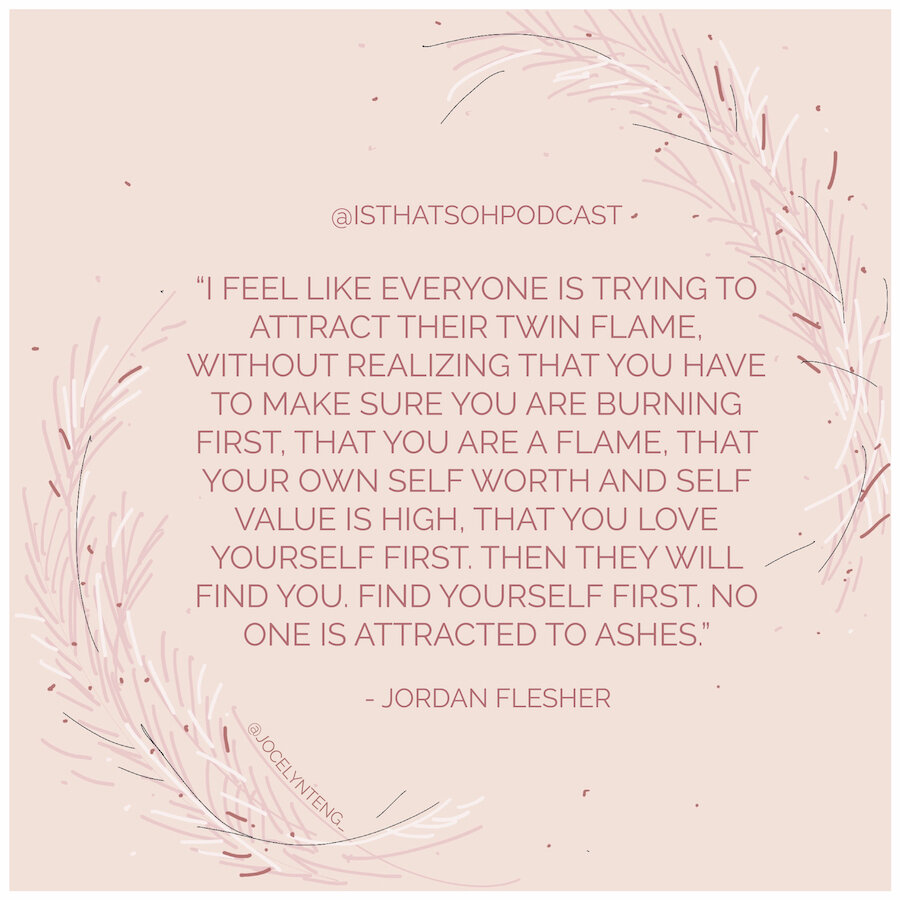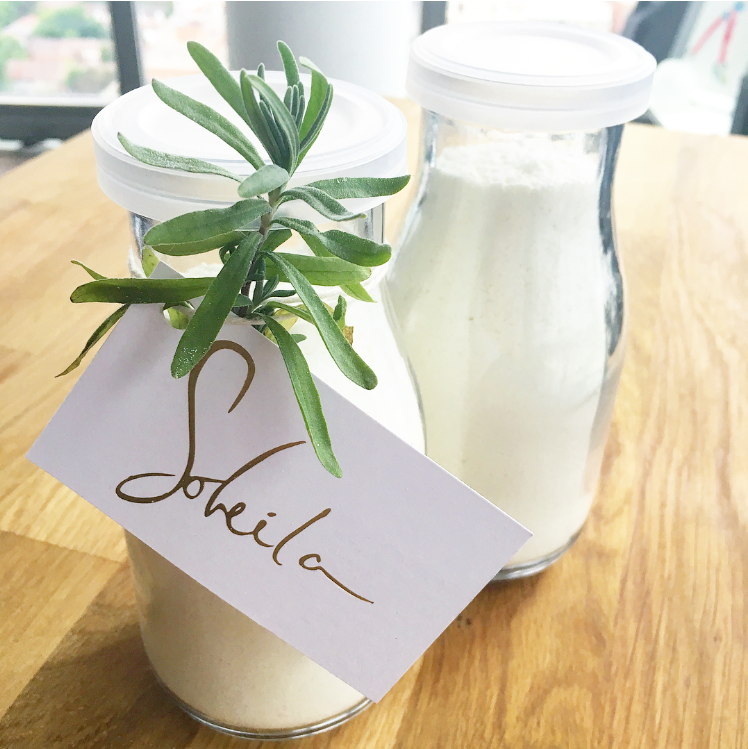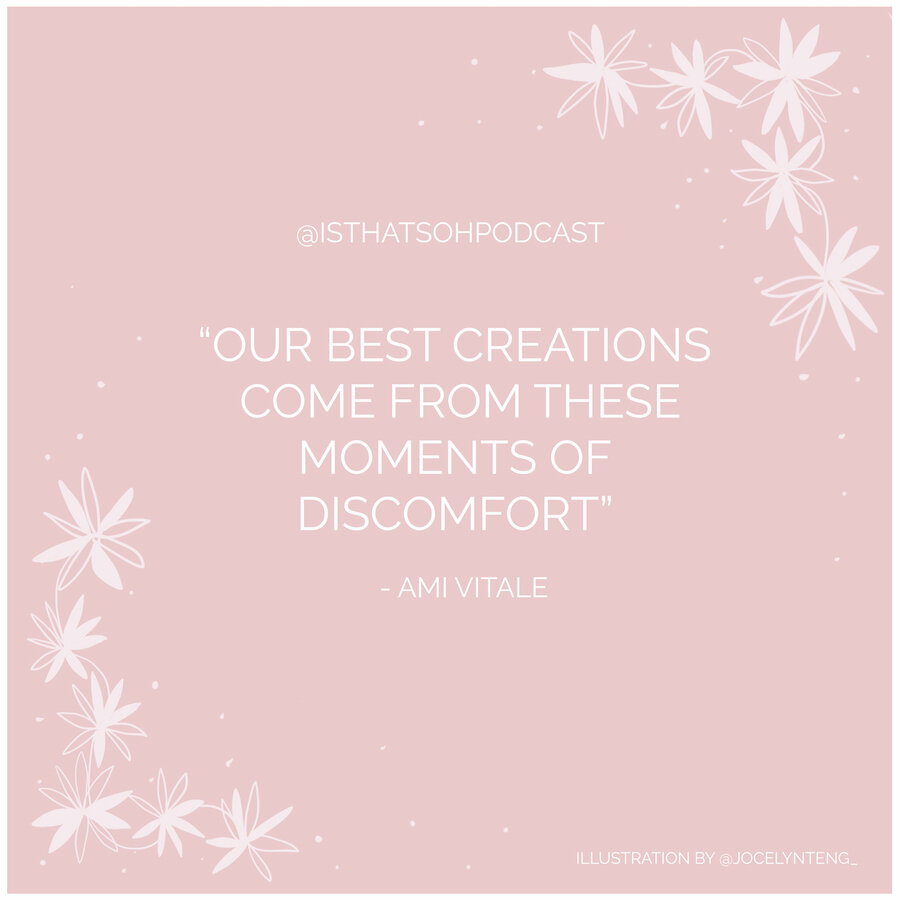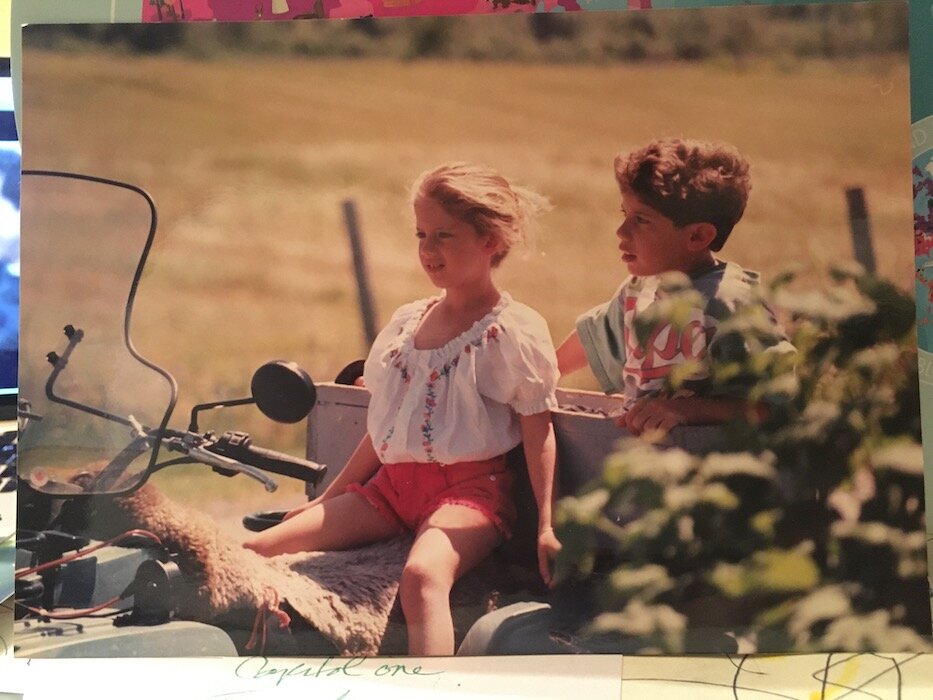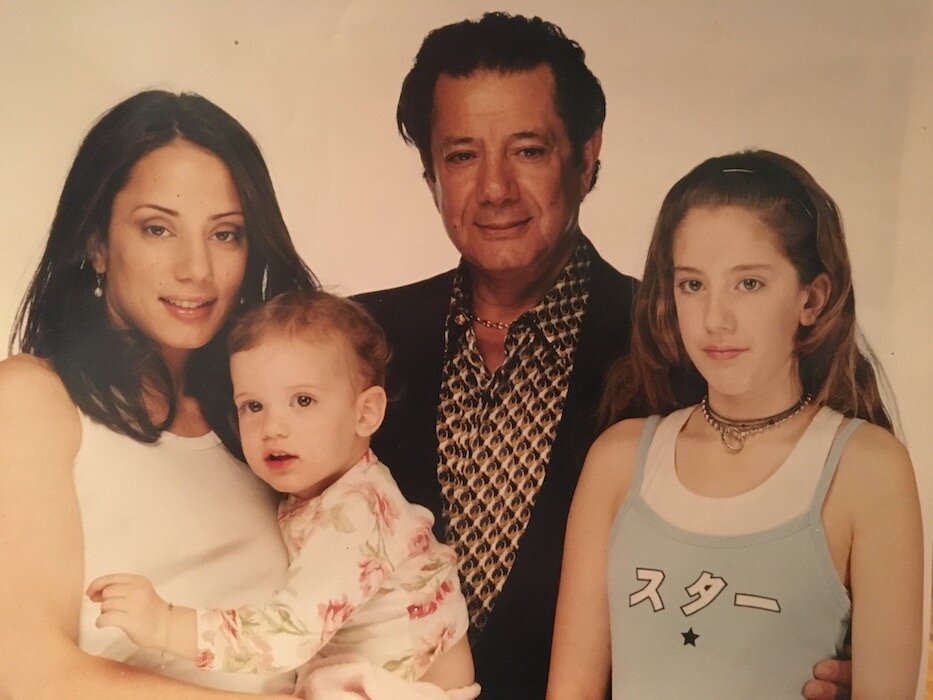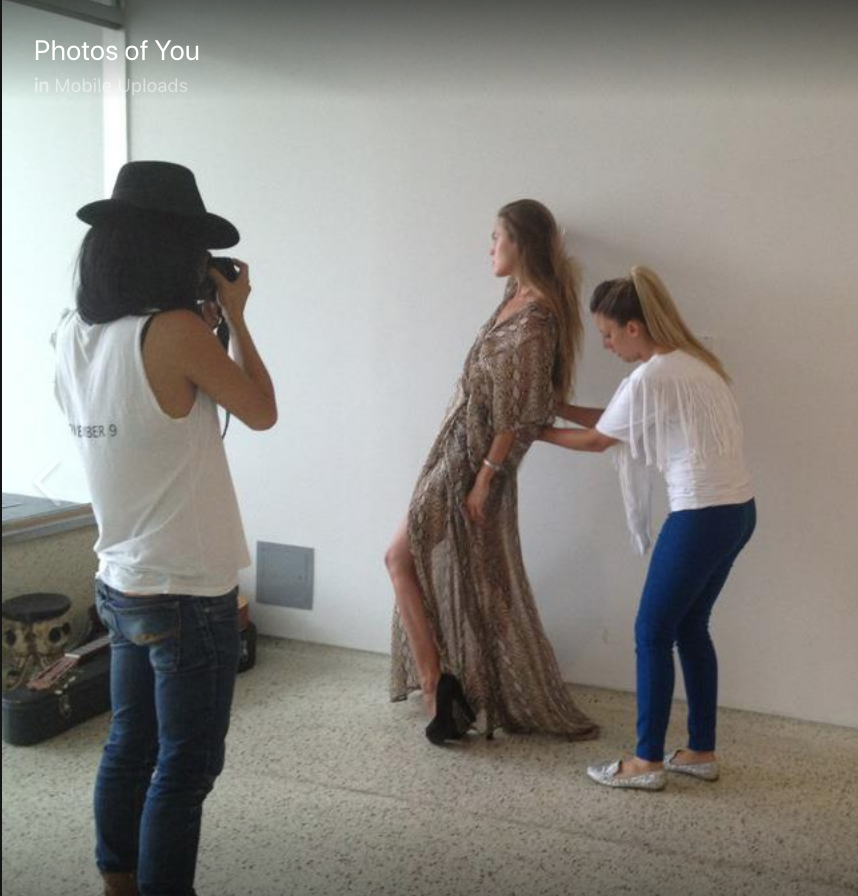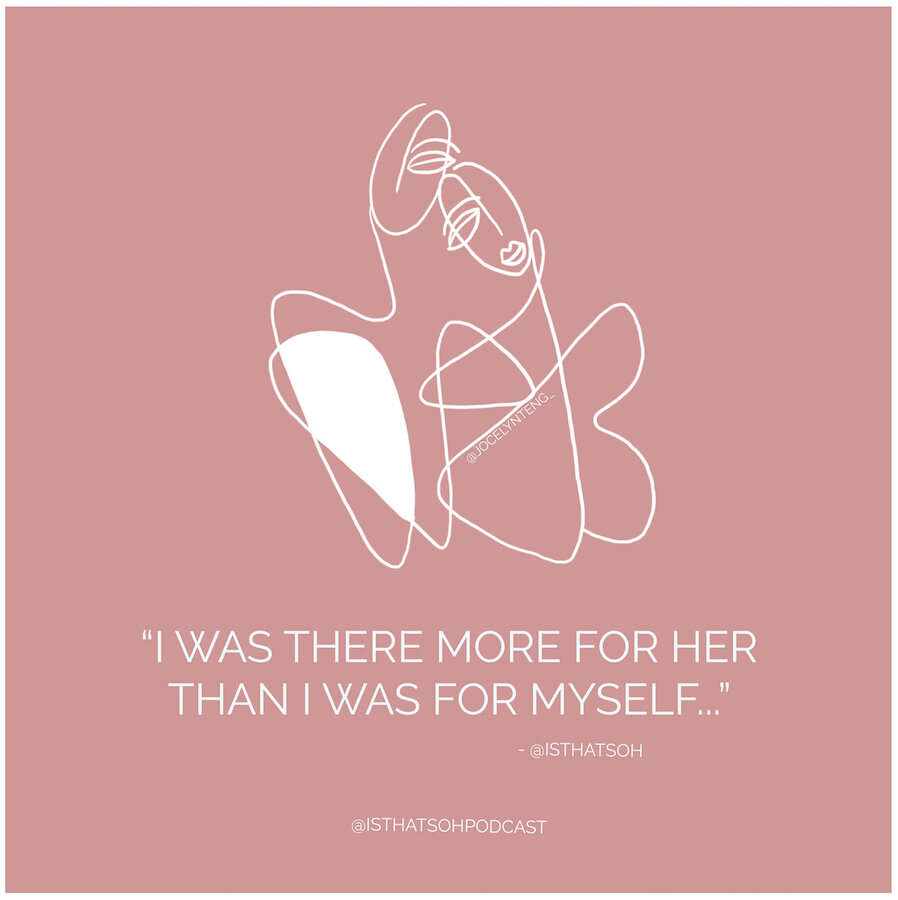EPISODE 8: HACKING YOUR HAPPINESS CHEMICALS
Hello and welcome back to the Is That Soh Podcast
Today on the podcast I wanted to talk to you about happiness chemicals.
The human body is really an amazing evolution. Life is designed to be a blissful experience and our biology ensures that everything we need for our survival will make us feel good, that is why we seek pleasure and avoid pain. Naturally, our bodies have the ability to produce happiness chemicals and today I thought I’d share some vital information about how they work and a few hacks you can do to boost them.
Did you know that the warmth you feel from a long hug is caused by an entirely different chemical sensation than the high you feel after a long run or bike ride?
So to start, there are four major chemicals in the brain that influence our happiness. These happiness chemicals are fundamentally responsible for creating the sensations and emotions we’ve come to associate with happiness and they go by the acronym DOSE.
Dopamine
Oxytocin
Serotonin
Endorphins
Dopamine aka the “feel-good” hormone and neurotransmitter, plays an important part in your brain’s reward system. Dopamine is associated with pleasurable sensations, along with learning, memory, and motor system function for example. It is the source of that little happy feeling when someone fills in a checkbox or complete a small task. It is responsible for reward-driven behavior and pleasure-seeking as it is meant to motivate your body toward a distant goal, one step at a time.
Did you know that you can get a natural dose of Dopamine when you perform acts of kindness toward others? Volunteering has been shown to increase dopamine as well as have other long-term health benefits. Some research has even found that just thinking about love and kindness can actually bring on the dopamine high as well.
Oxytocin, often called the “love hormone,” is essential for childbirth, breastfeeding, and strong parent-child bonding. This hormone can also help promote trust, empathy, and bonding in relationships and oxytocin levels generally increase with physical affection like kissing, cuddling, and sex. I’ve also heard it affectionately referred to as the “hugging drug” because it is released by the brain during physical contact with others. It’s also the feeling behind love, friendship, or deep trust.
What’s especially great about oxytocin is that it often works two ways. So those long hugs give both you and the hug-receiver a dose of oxytocin .
Studies have shown that oxytocin seems to affect males and females differently though, especially in social contexts. It is theorized that because the hormone acts differently in the male and female amygdala - the portion of your brain responsible for emotion, motivation, and reward - causing males and females to be affected differently. One study even suggested that Oxytocin hormones could influence males to stay faithful to their partner. In theory, the more time you spend with your partner, the more oxytocin you and your partner produces. The more oxytocin you produce with your partner, the more you desire your partner, and the more attracted to them you become versus other unfamiliar females. This in turn makes them more prone to being faithful and creating a behavior loop so to speak.
Did you know that Oxytocin also boosts our immune systems, makes us better problem solvers, and more resistant to the addictive qualities of dopamine. Unlike dopamine, which is largely responsible for instant gratification, oxytocin gives us lasting feelings of calm and safety.
Serotonin, also known as ‘The Confidence Molecule” is also a hormone and neurotransmitter like Dopamine except that Serotonin helps regulate your mood as well as your sleep, appetite, digestion, ability to learn, and even memory.
If someone is experiencing low serotonin levels, they might:
feel anxious, low, or depressed
feel irritable or aggressive
have sleep issues or feel fatigued
feel impulsive
have a decreased appetite
experience nausea and digestive issues
crave sweets and carbohydrate-rich foods
Like oxytocin, Serotonin is also considered a social chemical because of how it plays a role in the dynamics of pride, loyalty, and status. When we feel a sense of accomplishment or recognition from others, we are experiencing the effects of serotonin. This for example could be as a result of receiving your diploma, crossing the finish line in a race, or being appreciated for hard work in the office.
Photo by Vasily Koloda on Unsplash
Did you know Serotonin also plays a role in many crucial systems in our body beyond just our well-being and happiness. It’s believed to affect digestion, bone growth, and even organ development. Interestingly enough, an estimated 80 percent of serotonin exists in the gut, and is governed by your state of hunger! This is why you get haangry!
Last but not least, the E in DOSE is for Endorphins - our body’s natural pain reliever. Endorphins are responsible for masking pain or discomfort and the name Endorphin translates into “self-produced morphine." That is why when it comes to happiness, endorphins are what help you “power through” stress or discomfort and give you a boost in your overall mood when you engage in reward-producing activities, such as eating, working out, or having sex. It is also why many describe getting a ‘runners high’ after exerting themselves for a long period of time. Once you remove the pain part of the equation, endorphins actually feel like a “high” or even just a nice relaxing feeling. For example, have you ever been to a thermal spa where they have cold and hot tubs. When you move from a hot to a cold tub or jump into a freezing cold shower you are giving yourself a huge boost of endorphins which can feel quite rewarding if you can stand a minute or two of physical discomfort.
Did you know that If you were to examine the chemical structure and effects of endorphins they look a lot like opiates.
Like endorphins though, Adrenaline also helps the body deal with distress and fearful situation. Known as “The Energy Molecule”, adrenaline plays a large role in the fight-or-flight mechanism. A release of adrenaline is often described as exhilarating and creates a surge in energy that both increases your heart rate and blood pressure. An "adrenaline rush" can be triggered on demand by doing things that terrify you like sky diving or being put into a situation that feels dangerous and jolts of adrenaline are said to be healthy in small doses, especially when you need a pick me up.
Together though, these 5 happiness chemicals create desirable mood states in the brain and by focusing on lifestyle choices that secrete each of these neurochemicals, you will increase your odds of happiness across the board. So the question then becomes, how do I boost them. Well, there are a variety of ways!
WAYS TO BOOST YOUR HAPPINESS CHEMICALS
Go outside. Simply spending time outdoors, in sunlight, is a great way to do this. Start with at least 10 to 15 minutes outside each day. Try exploring a new neighborhoods or park.
Regular physical activity can also increase your dopamine and serotonin levels. Just like the “runner’s high” I talked about before, your body can naturally give you an endorphin releases with some exercise.
Laugh. Laughter can help relieve feelings of anxiety or stress, as well as improve a low mood by boosting dopamine and endorphin levels.
Plan meals around food items known to boost your happy hormones like:
spicy foods, which may trigger endorphin release
yogurt, beans, eggs, meats with low-fat content, and almonds, are just a few foods linked to dopamine release
probiotic-rich foods, such as fermented foods like kimchi or sauerkraut which actually help boost dopamine production
foods high in tryptophan, like turkey and salmon which have been linked to increased serotonin levels
Research suggests that eating 25 to 30 grams of carbs along with foods high in tryptophan may help more tryptophan make it into your brain.
Curcumin the active ingredient in turmeric has also been shown to increase dopamine levels in mice and may have antidepressant effects.
Green tea is another item shown to contains the amino acid which has been known to increase dopamine levels as well.
Listening to instrumental music, especially music that gives you chills, can increase dopamine production in your brain.
Meditation - If you’re familiar with meditation, you might already know of its many wellness benefits — from improving sleep to reducing stress. Studies show the link between many of meditation’s benefits to increased dopamine production during the practice while other research shows it can spur an endorphin release.
Plan a romantic evening. Simply being attracted to someone can lead to the production of oxytocin along with physical affection like kissing, cuddling, or having sex which actually releases both endorphins and dopamine. Further, sharing a glass of wine with your partner or dancing can add an endorphin boost.
Pet your dog! They don’t call them ‘man’s best friend’ for nothing. Giving your dog some affection is a great way to boost oxytocin levels for both you and your dog. According to research, dog owners and their dogs see an increase in oxytocin when they cuddle so if you don’t have another human being to offer you affection to your favorite pet can also do the trick.
Getting a good night’s sleep can also help boost your happiness hormones. Sleep effects your happiness chemicals more than you think and not getting enough quality sleep can affect your health in multiple ways. For one, it can contribute to an imbalance of hormones, particularly dopamine, in your body. This can have a negative impact on your mood as well as your physical health. Setting aside 7 to 9 hours each night for sleep can help restore the balance of hormones in your body, which will likely help you feel better.
Managing your stress. It’s normal to experience some stress from time to time. But living with regular stress or dealing with highly stressful life events can cause drops in dopamine and serotonin production. This can negatively affect your health and mood, making it harder to deal with the cycle of stress.
Get a massage. Believe it or not, massages can boost up to 4 of your happy hormones. According to research, both serotonin and dopamine levels increased after massages and one study that looked at 84 pregnant women with depression said that those who received 20 minutes of massage therapy from a partner twice a week felt less anxious and depressed while also showing higher serotonin levels in their body after 16 weeks.
Have a good cry. Holding back tears can build up tension and anxiety whereas if you let it go and have a good cry, it generally provides a physical relief from tension in the body, and stimulates Endorphin releases.
Keep yourself motivated by planning baby steps towards a goal. The idea of breaking down a tough task you have to get done makes it feel more do-able while also allowing your brain to reward you with dopamine each time you complete a small step.
Supplements are also said to be a great way to boost your serotonin and dopamine production however some supplements can also interact with certain medications, so make sure talk to your healthcare provider before you try them.
All right, so there you have it. Everything you need to know about the bodies natural abilities to produce happiness chemicals and how you can boost them. If you have any comments about this episode please feel free to leave them in the comment section of my show notes! Alright! I hope everyone has a great week boosting those happiness chemicals and I’ll see you again next Monday! CIAO!
Sources
https://www.ncbi.nlm.nih.gov/pmc/articles/PMC4449495/
https://www.healthline.com/health/happy-hormone#pets
https://technologyadvice.com/blog/information-technology/activate-chemicals-gamify-happiness-nicole-lazzaro/
https://www.happyfeed.co/research/4-brain-chemicals-make-you-happy
https://www.psychologytoday.com/ca/blog/the-athletes-way/201211/the-neurochemicals-happiness
https://medium.com/thrive-global/the-brain-chemicals-that-make-you-happy-and-how-to-trigger-them-caa5268eb2c
https://www.psychologies.co.uk/self/how-to-boost-your-natural-feelgood-chemicals.html
https://www.healthline.com/health/how-to-increase-serotonin#takeaway
https://www.healthline.com/nutrition/dopamine-supplements#section14
https://www.healthline.com/nutrition/how-to-increase-dopamine#section11
https://www.healthline.com/health/love-hormone#negative-effects




